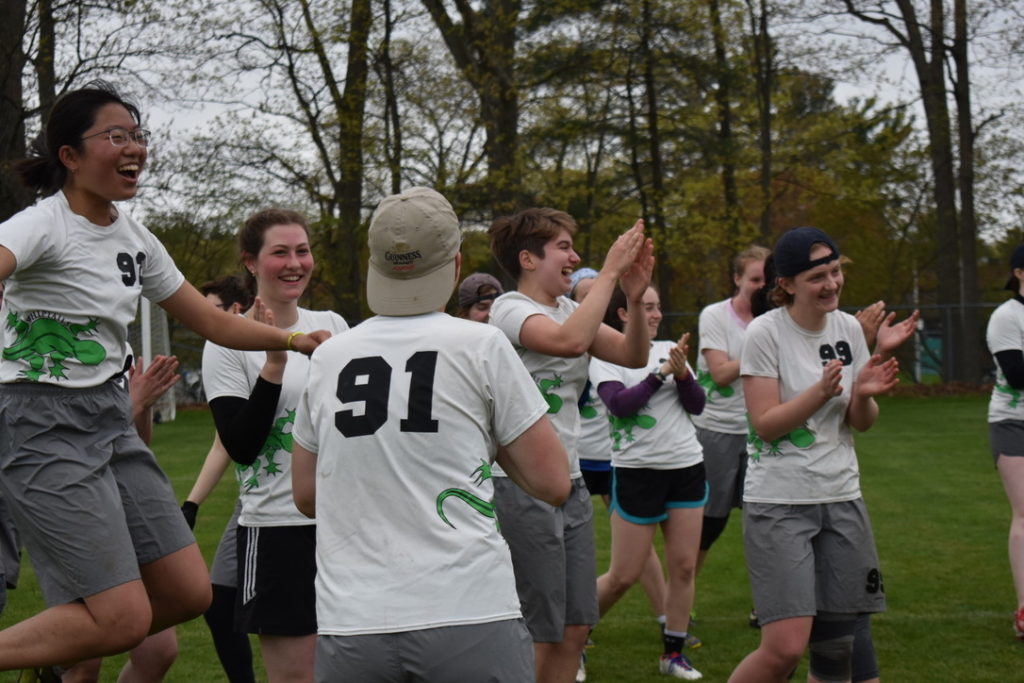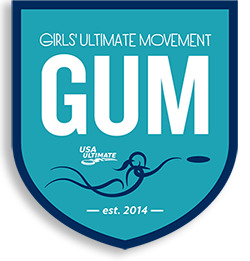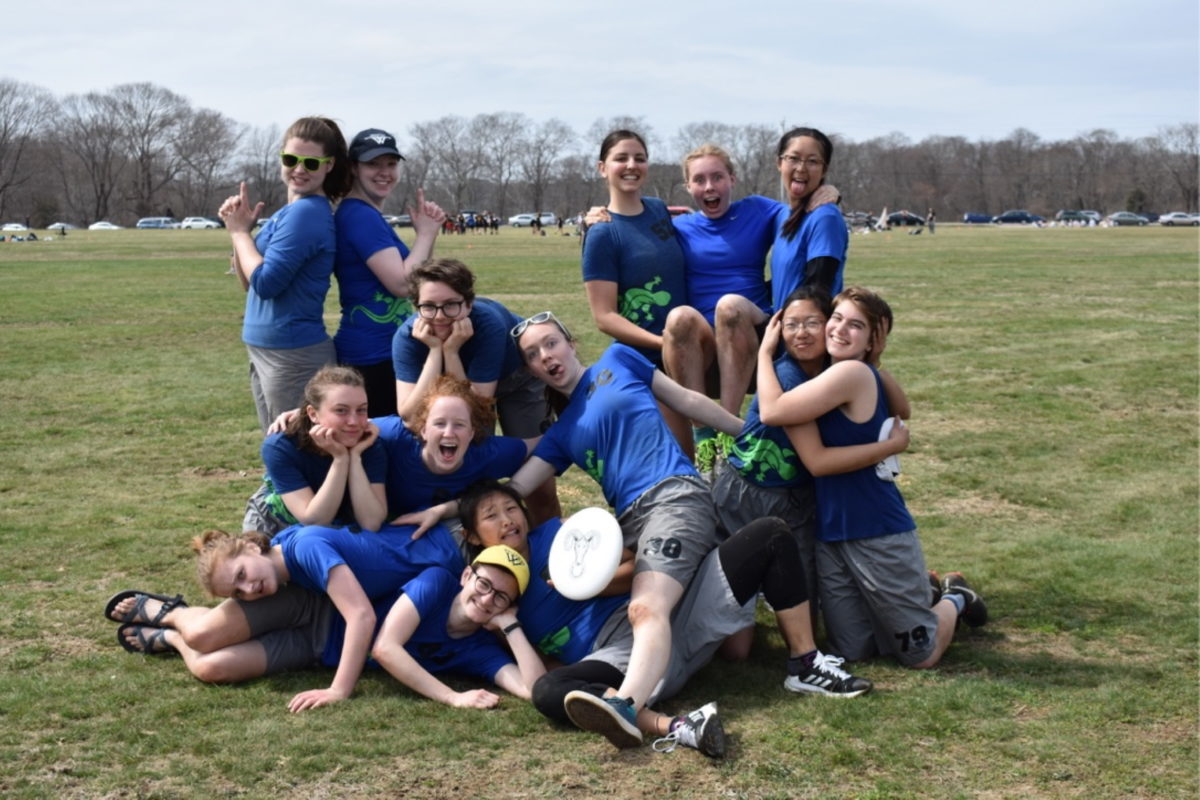“My daughter’s majoring in ultimate Frisbee.”
It’s what my mom tells her friends when they ask what I’m up to at school. She says it with a wry smile, and neither she nor I are sure how much she’s joking.
No one saw my level of devotion to the game coming, especially not me. I had never played any sport before and always had an excuse whenever my parents urged me to join them on a Saturday morning run. But all that changed when I found ultimate.
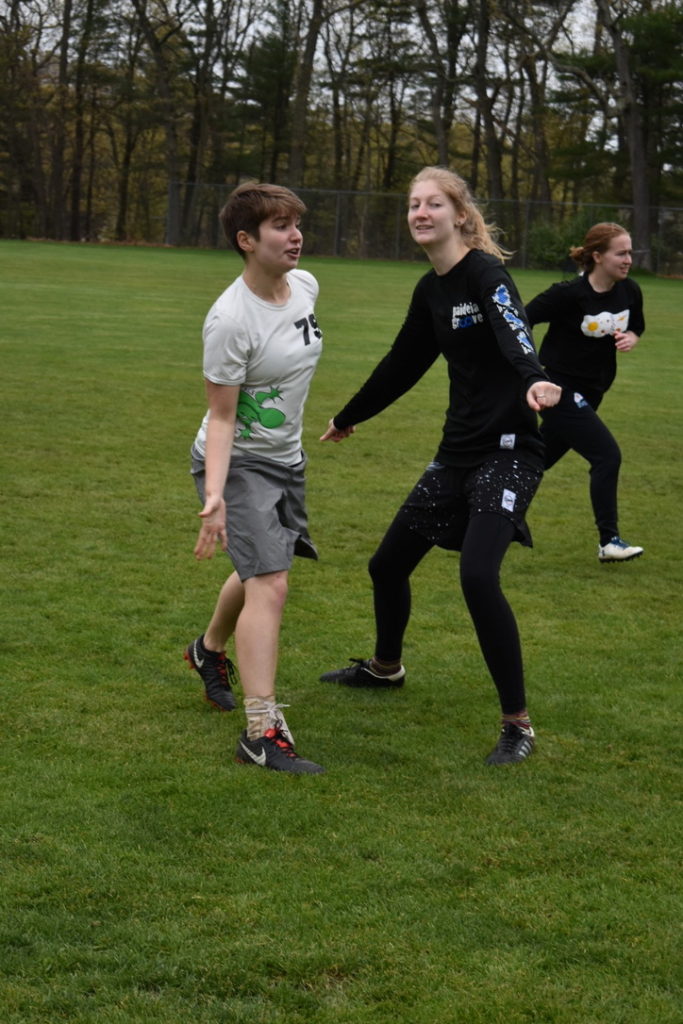
Like most kids in their first weeks at college, I was nervous and directionless. I didn’t know whether I should seek out the theatre kids – like I had done in high school – or try something new. The one friend I had made during orientation decided to go to the ultimate open practice, and I tagged along, both of us believing “ultimate” consisted of standing stationary in a circle and throwing the disc. I began to realize something was wrong when they called us to do a warm-up jog. Warm up for what? When it became clear that ultimate was, like, a sport, I decided I would never come back. After all, I wasn’t an athlete. I didn’t do sprints or drills. I never owned cleats in my life, and the only workout clothes I had was my gym class uniform from high school.
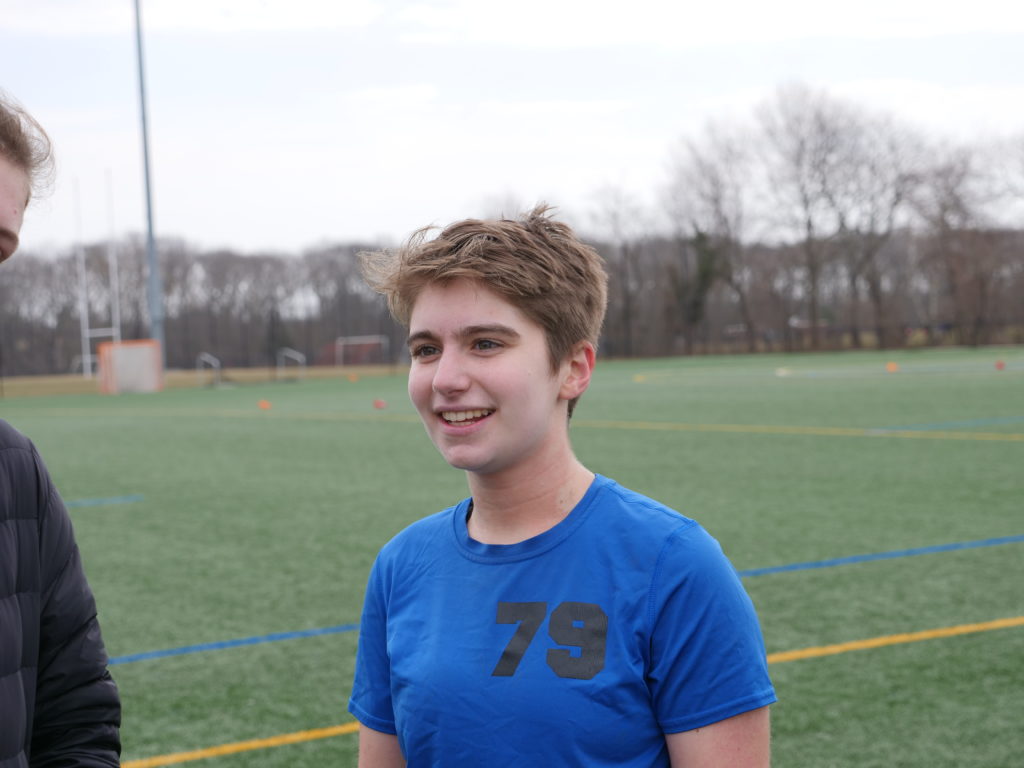
But, sometime during those two hours, as I watched the experienced players demonstrate skills for us, I became enchanted, riveted, obsessed. The flow of play was so beautiful to me. Ultimate had a grace that I hadn’t seen in any other sport. The way the disc hung in the air seemed to invite you – or taunt you – saying, “Come and get me.” Action could move impossibly quickly, as a throw sliced past, or go into slow motion, as a disc drifted out of the sky towards players ready to leap for it. As I watched the field that first day, I became fiercely determined. I wanted to be like those players. I wanted to be good at this.
However, I was disappointed to realize that passion and love for the game did not instantly translate into skills on the field. “Mediocre” would be a kind word to describe my level of play. “Mediocre” was what I aspired to. Luckily, I had ended up on the kindest, best team in the world, and no one seemed to mind my non-existent skills. My school’s program was designed for players who never played ultimate before, and I was far from the only one who had never even played a sport. The older players knew that part of their job was to encourage the newbies, to cheer on their progress and, when they made mistakes, give thoughtful, tactful advice for next time. I have been incredibly lucky with this team, and with my ultimate experience in general. I play on a team in the women’s division and attend a women’s college (although neither all the students at my school, nor all the players on my team, identify as women). The only teams I heard my teammates talk about were teams in the women’s division. I was completely oblivious to the fact that cis men played ultimate at all, so I found it easy to feel at home competing and playing with predominantly women.
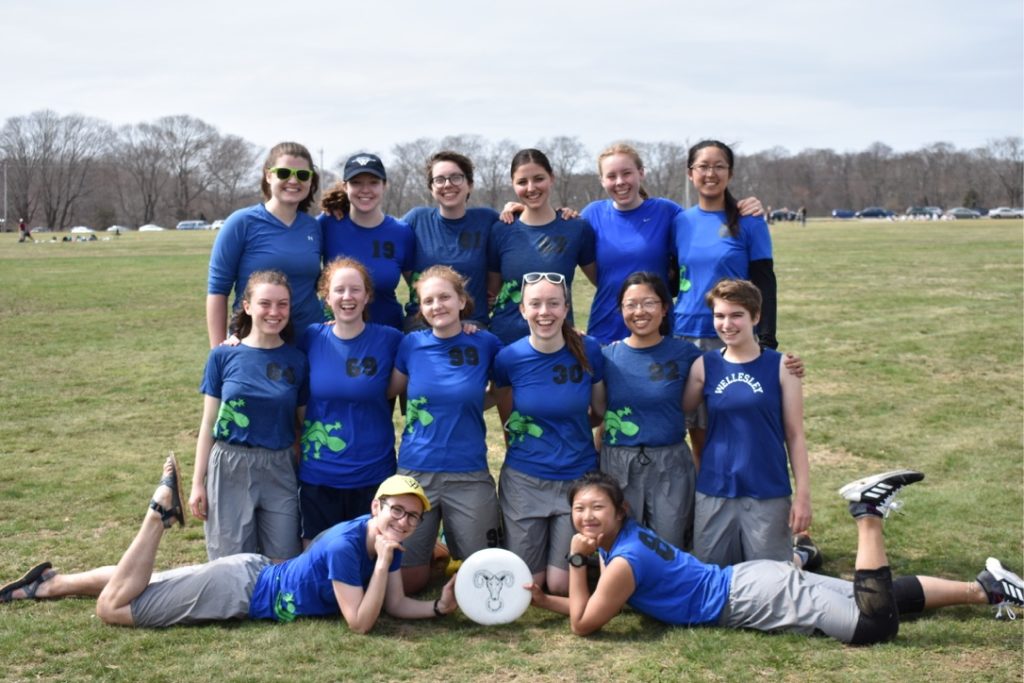
As the year went on, I became frustrated that my play wasn’t advancing as fast as I would have liked. In one of my coach’s post-practice pep talks, he casually blew my mind, telling us: “No one ever got good by just practicing during practice.” It seems so obvious now, but I really had never thought of practice and skill-development that way. I thought it was enough to dutifully show up for two hours, three times a week and wait for results. But suddenly, I understood that if I wanted to become a better player, I’d have to put in work. A lot of work.
So, put in work is what I started to do. Luckily, my parents, thrilled that I was finally working on my fitness, were happy to help. During winter break, when it was too cold to be outside, my father woke me up at 6:30 a.m. to toss with me in the local gym while it was still empty. My mother was off the hook for tossing practice after I hit her in the face with the disc and gave her a bloody nose, but she got me on a program running four times a week to improve my speed and endurance. I would never have pushed myself to be that active – which I now realize will have lifelong benefits for me – if it wasn’t for ultimate.
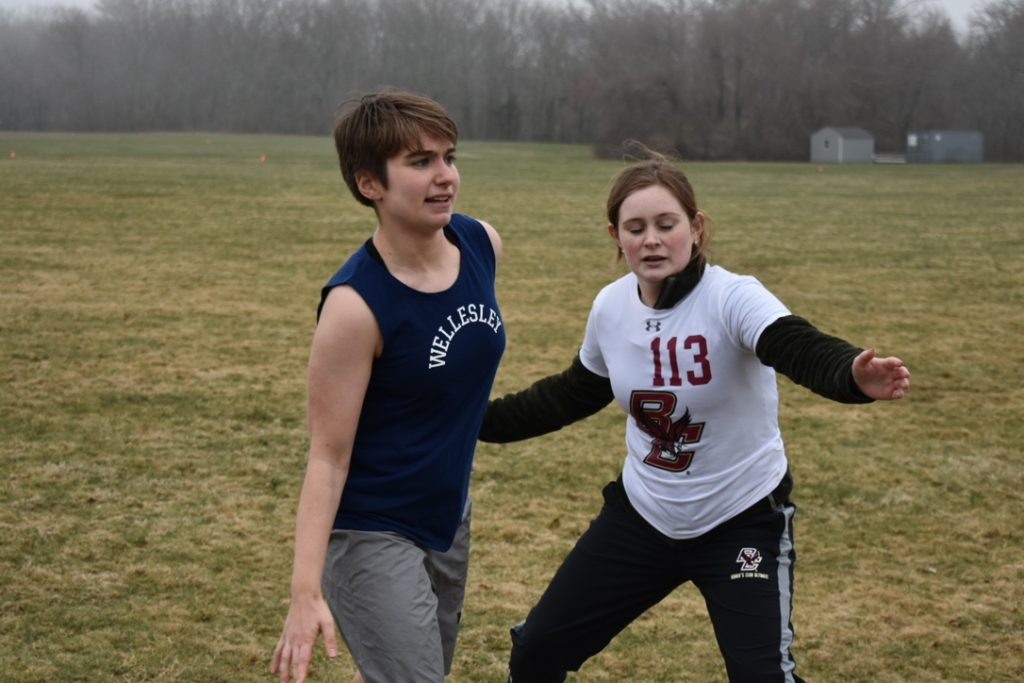
Even still, my progress was, and remains, slower than I would like. I’m still adjusting to thinking of myself as an athlete, as I referred to practice as “rehearsal” for my entire first year. But, I’ve found that plugging away at something for which I do not have natural talent, but I love more than anything, has made me more patient and determined than I ever thought I could be. It takes practice and discipline to learn from mistakes and let them go, focusing instead on what you’re proud of. It’s not about the end goal: becoming the perfect player, winning that title, even just mastering that throw. What matters – and what stays with you – is the hard work it took you to get there.
I love ultimate. I don’t have any dreams for high rankings or national titles: I play on a Division III B-team. But the extraordinary love I’ve found in the ultimate community, and the strength I’ve discovered within myself to keep working hard, has changed the way I approach everything in my life. I don’t shrink from challenges anymore, or think that I have to be good at something the first time I try it for it to be worthwhile. I’m so grateful for everything the past two years of ultimate have taught me, and I can’t wait to see where else it will lead me.
